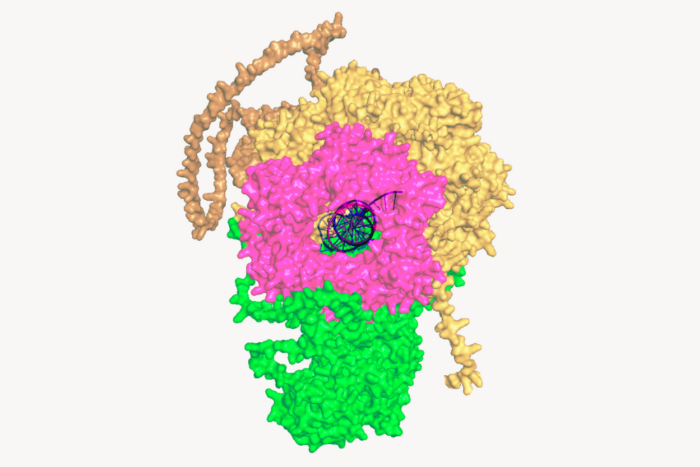Science communicator named new head of Public Affairs
by WYNNE PARRY
An endless stream of compelling discoveries emerges regularly from Rockefeller’s research community and it is the job of the Office of Communications and Public Affairs to make sure those findings are accessible internally and externally. The new executive director of the office, Franklin Hoke, brings with him a background as a veteran science journalist and communications leader in academic settings, and he plans to bolster the office’s core mission to disseminate scientific news. He joined the university in June.
“As Rockefeller strengthens its communications capabilities, we’ll be more closely aligning our efforts with the university’s strategic plan and enhancing our ability to share the powerful science always unfolding at the university,” Mr. Hoke says. “Research at Rockefeller is changing the world, and we want to make sure that fact is well and widely understood and appreciated.”
Mr. Hoke emerged as the top candidate in an extensive national search led by a recruiting firm, PBR Executive Search, under the direction of Timothy O’Connor, the university’s chief of staff. Mr. Hoke, who holds a bachelor’s degree in English from the University of Maryland, traces his interest in science to his father, a biologist and urban parks planner with the National Park Service. His first forays as a science writer, as a young teen writing for Ranger Rick magazine, grew out of his involvement in his father’s ecological projects.
After completing college, Mr. Hoke worked as an academic journal editor, a writer at NASA’s Goddard Space Flight Center and a science policy researcher at Princeton University. From 1992 to 1995, he was senior news editor at The Scientist, a science news magazine, where he covered a wide range of beats including the profession of science, federal research priorities and high-profile scientific research.
He moved into academic communications when he took a position as a science writer and press officer working with the biomedical researchers at the University of Pennsylvania Medical Center. He later served as the director of communications for The Wistar Institute, an independent nonprofit biomedical research institution in Philadelphia, before moving to Fox Chase Cancer Center, where he was vice president for communications. Mr. Hoke cites as one of the chief pleasures in his work the close access it has given him to scientists and the chance to watch their research progress over time.
The Office of Communications and Public Affairs is responsible both for the external face of the university and for facilitating communication within the Rockefeller community. It oversees the university’s website, social media, press relations, marketing and publications, and it supports the university’s strategic goals, which include fundraising, recruitment and raising Rockefeller’s public and professional profile. The position Mr. Hoke has assumed had been vacant since director Joseph Bonner left in June 2013.
“Frank has extensive experience in both science journalism and managing public relations for research-intensive organizations, and he was highly recommended by his previous employers and by scientists he has worked with,” says Dr. O’Connor. “On visits to the campus last spring he demonstrated a smart and practical approach to institutional communications that respects both the science and the university’s unique culture.”
Mr. Hoke has been meeting one-on-one with faculty and others, and immersing himself in Rockefeller’s research enterprise. At the same time, he hired a communications consultant, SteegeThomson Communications, to assist with an audit and competitive review of the university’s communications efforts. Based on interviews with stakeholders inside and outside Rockefeller and best-practices comparisons with peer institutions, the firm’s report will recommend ways the university can refine its messages and shape its future communications initiatives.
“I feel privileged to have such an intimate window onto one of the most creative and energetic sectors of our society during what has been a golden era for biomedical science,” Mr. Hoke says. “The opportunity to work at Rockefeller allows me to pursue the central passion of my career — telling the stories of science — on an even higher level, and I look forward to working with all of the scientists at the university to share their important work both within our own community and with the rest of the world.”



